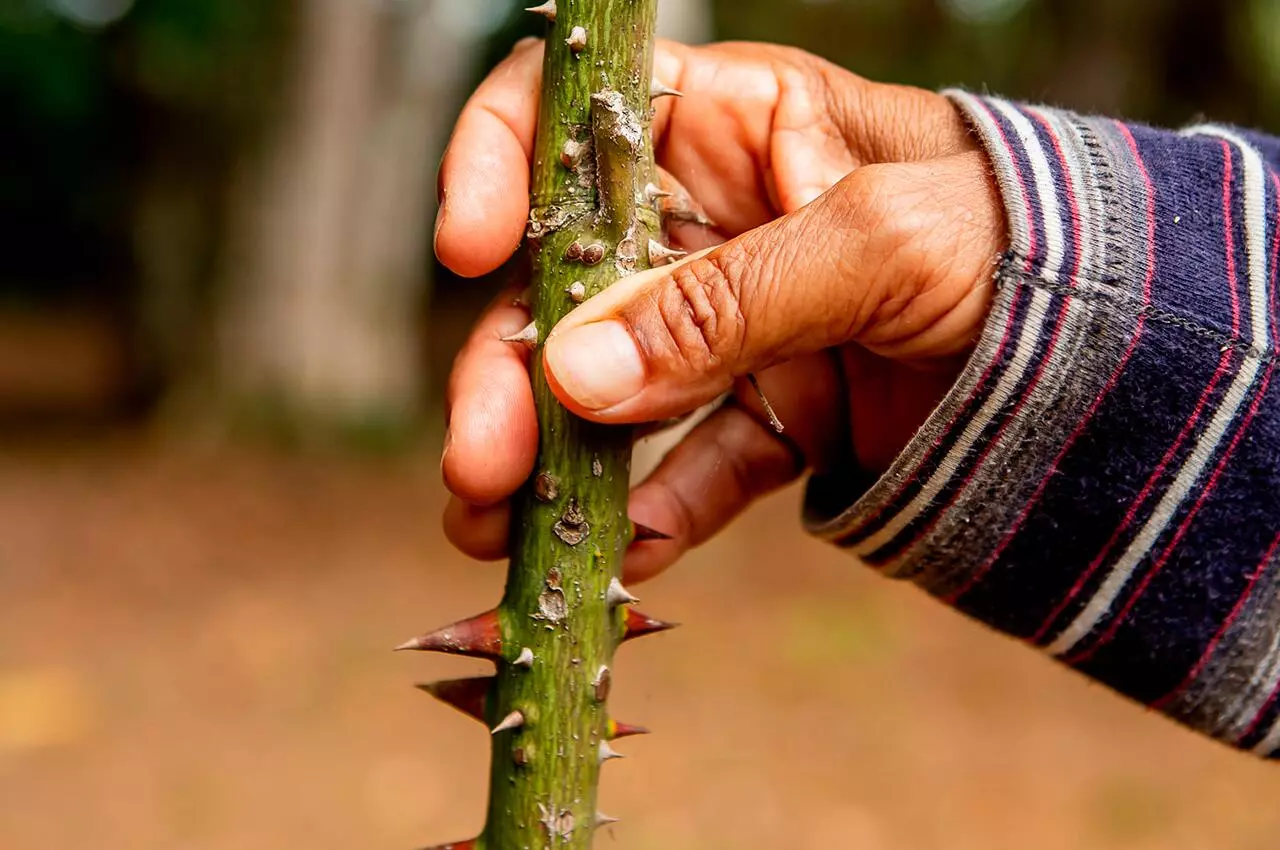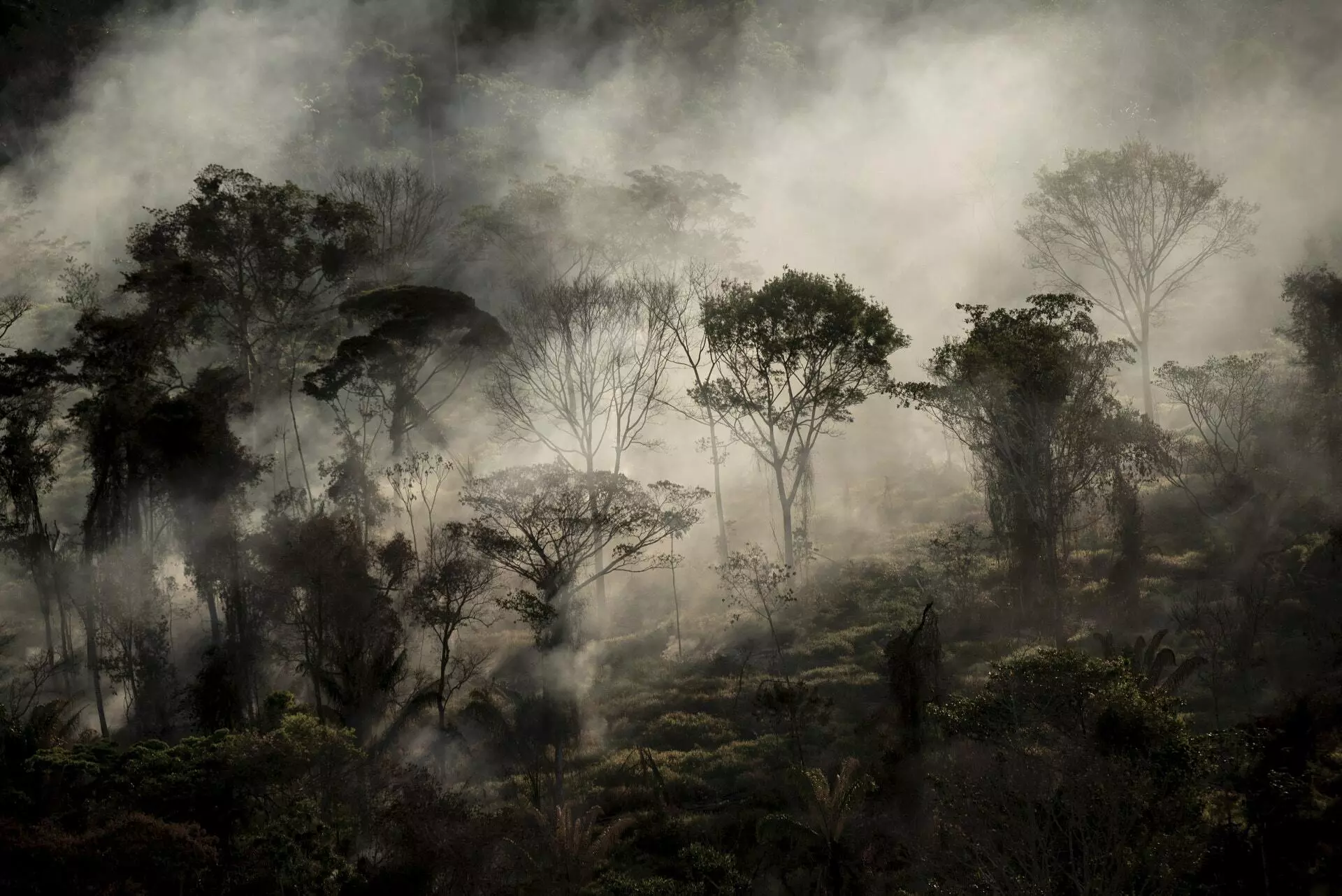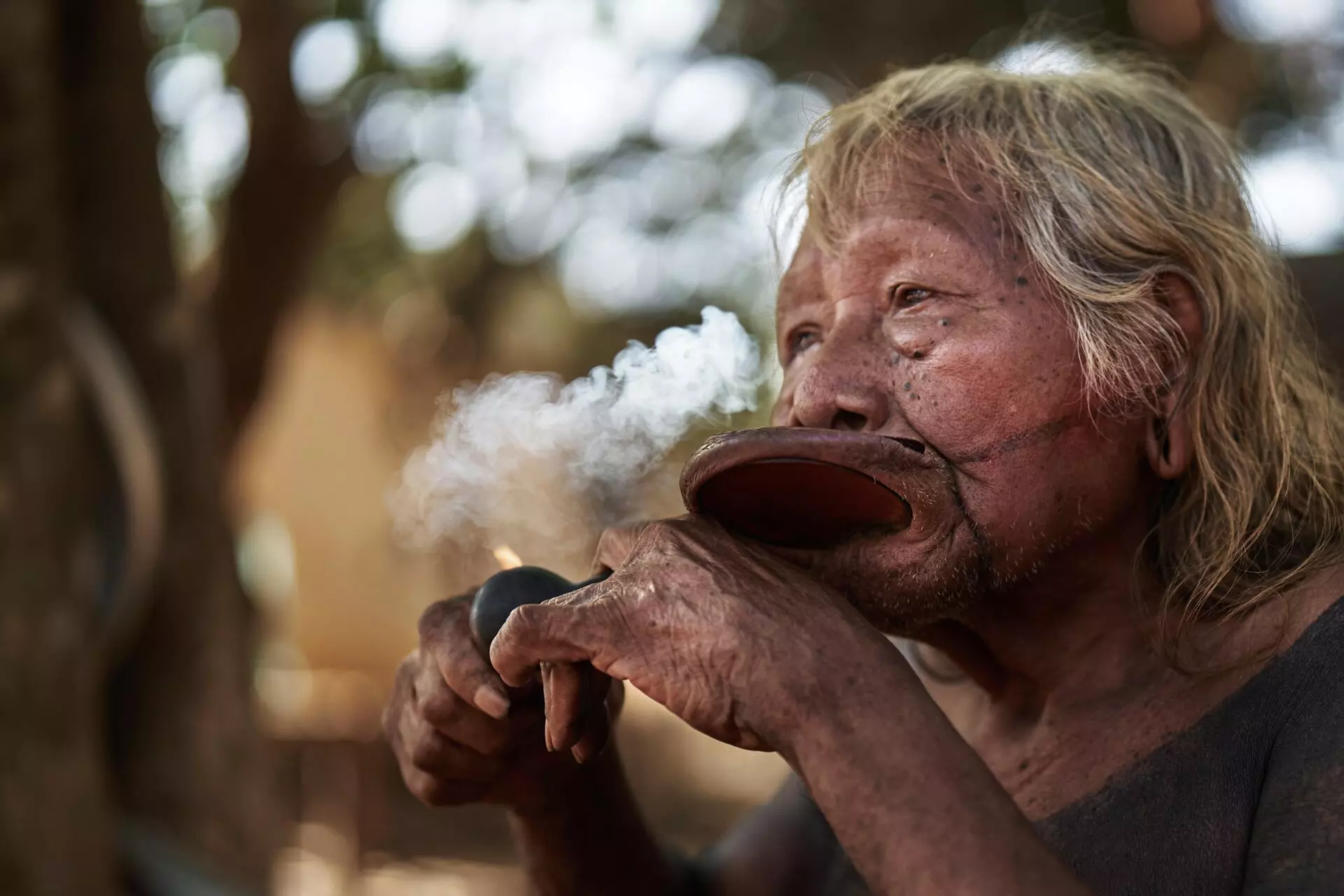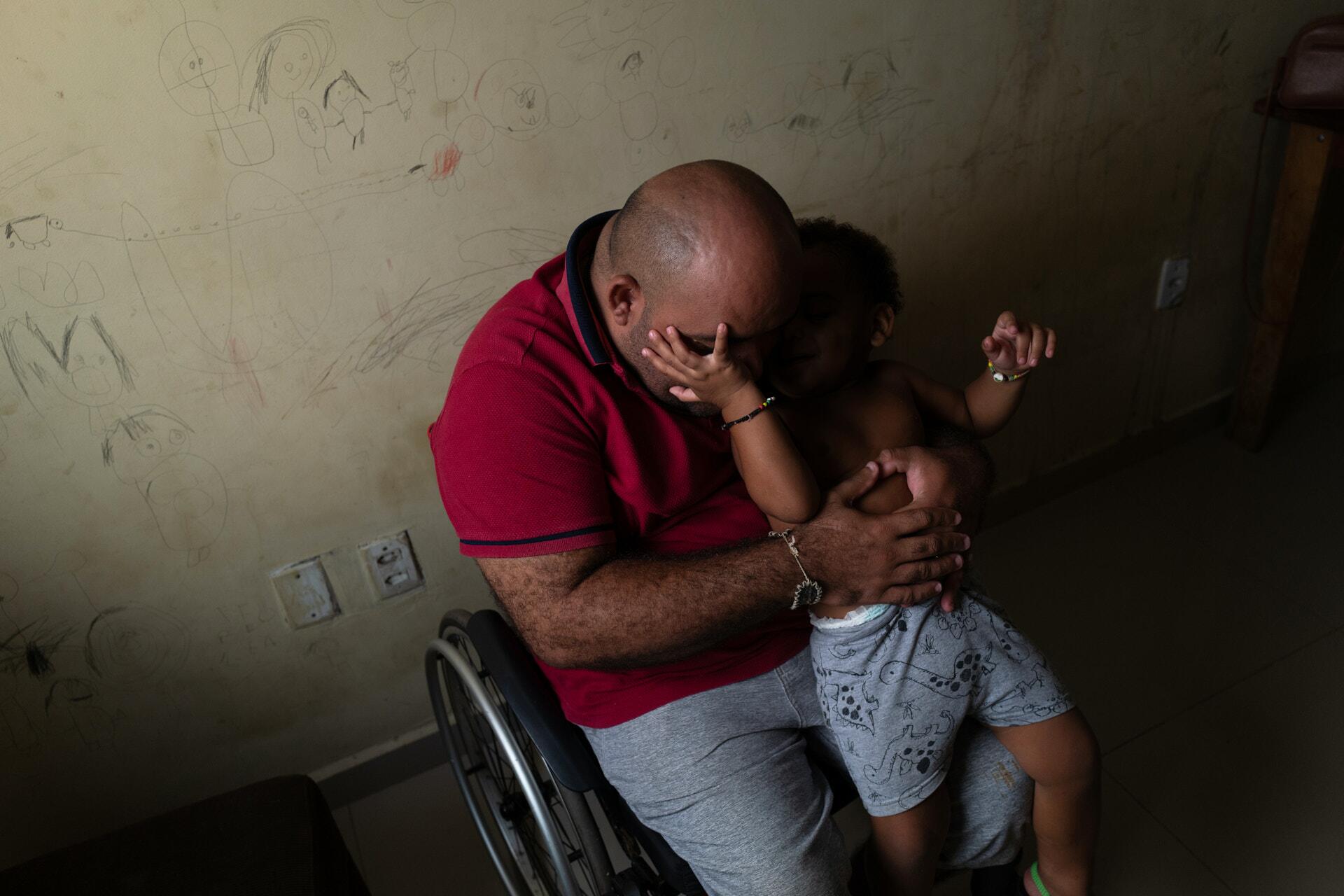Dear community,
Who defends the defenders? This question has been on our minds for the last two months, ever since Sumaúma became acquainted with the story of human rights defenders threatened with death in Pará, which is the Brazilian state that has the highest number of people killed in land conflicts. We listened to reports from people who found open graves with their names in their own backyards, had guns pointed at their heads in front of their children and grandchildren, were forced to flee their homes, leave the food they had planted with their own hands, to live far away from everything and everyone, trapped in a type of prison and fear while their executioners went free and destroyed everything. These are people who put their own lives on the line against powerful enemies to keep the forest standing and in this way help ensure the survival of everyone – humans as well as non-humans. Yet it is sometimes these same defenders who are abandoned and sometimes even humiliated by the Brazilian State.
In the special SUMAÚMA report that kicks off this newsletter, reporter Catarina Barbosa, and I delve into the world of the Human Rights Defenders, Communicators, and Environmentalists Protection Program, a federal scheme that was created during the first Lula government, but which in 2019 began to be managed in Pará by the state government. The program’s main objective was supposed to be keeping people safe in their homes, whilst fighting against invaders who want to plunder their territories and profit from the forest. In more serious situations, where there is an imminent risk of death, the program was supposed to remove the defenders from their homes and place them in temporary residences in an undisclosed location until the danger had past and it was possible to return. On paper, a perfect public policy. In practice, a human rights program that violates human rights. “It’s nothing more than a piece of paper,” confided Maria do Socorro Costa, aka Socorro do Burajuba, a nickname that refers to her community, which is surrounded by land-grabbers, loggers, ranchers and big multinationals that contaminate the soil and where the fruit that the trees produce is rotten even before it has ripened.
For her and all of the others who we interviewed, being in the program doesn’t mean having more protection to keep fighting. There is no more security in their homes, nor is there any more police protection. Those who threaten them remain close at hand, even after numerous police reports have been filed. They are free to continue making threats until it is no longer possible to fight. If they cannot kill the body, they try to kill the spirit. And they force unprotected defenders to seek refuge far away.
This is what makes the humiliation even more cruel, the fact that it comes from the State itself. The families are placed in houses that flood and where there is sewage coming out of the drains; their refrigerators are normally empty, because the allowance from the program does not arrive at the end of the month; and they have to beg, in pain, to be taken to the doctor, in unfamiliar cities. Those who defend life have almost nobody to defend them. But, even so, they carry on fighting. And now they want to discuss with the government how to make sure that they will be treated with respect. They have set up an association for this purpose and will be taking their demands to Brasília next month.
The federal government has told SUMAÚMA that it will be overhauling the protection policy for defenders this term. There is no doubt that this is something which is urgently required, but this alone will not resolve the problem. What is needed is to investigate, judge and punish those who destroy the forest’s bodies and soul. It is necessary to restart the land reform program and quickly resolve the conflict in the countryside which is on the increase.
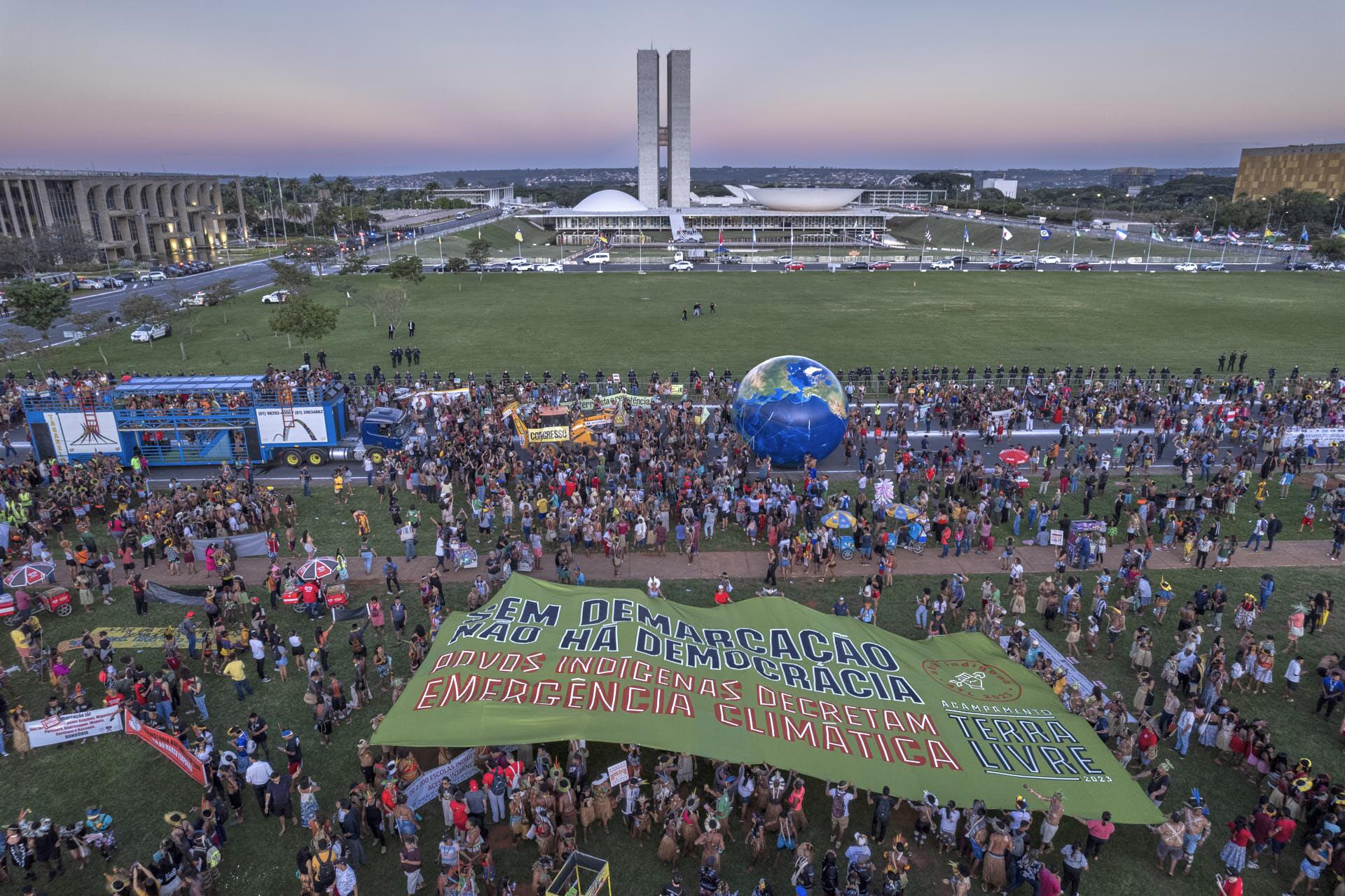
Banner displayed during the march at the Free Land Camp (ATL) 2023, in Brasília. The meeting’s theme was ‘The indigenous future starts today. Without demarcation there is no democracy!’. Photo: Fernando Martinho/Sumaúma
Solving these conflicts also involves the demarcation of indigenous lands. After six years during which for all intents and purposes no new areas were demarcated, at the end of the Free Land Camp (ATL), the new Lula government created six Indigenous Lands. There is no doubt this is an important step, but it is still very little in terms of the need. SUMAÚMA closely monitored the discussions that took place at the Free Land Camp (ATL), with a team of five people including reporters and photographers. And in a special report we related how, this year, the main gathering of the country’s indigenous peoples was a cultural and political celebration, given the representation of women in positions of power. The camp saw a mix of emotions: hope at the government’s promises and frustration among those peoples whose demands have not been met.
The yes to the original peoples is an important test for the new Lula government’s environmental commitments, but so is the no to Petrobras, which wants to open up a new source of oil exploration in one of the world’s richest and most unexplored regions. In this issue, we bring you a scoop on this topic which is very dear to SUMAÚMA. Reporter Claudia Antunes, who put the discussion regarding oil exploration at the Foz do Amazonas (mouth of the Amazon) on the Brazilian and global press agenda in February of this year. She exclusively reveals the Brazilian Institute of the Environment and Renewable Natural Resources’ (Ibama’s) technical team has recommended the license for the venture be refused. Petrobras needs the environmental agency’s authorization to drill a well in search of oil in the so-called Block 59, about 160 kilometers from the Oiapoque region, which has endemic species that are under threat and which have not been well studied. The technical report will serve as a basis for afinal decision by Ibama’s president, Rodrigo Agostinho, regarding the exploration permit.
We wrap up this issue with another report by Claudia Antunes, this time about Belo Monte, the environmental test in which the Workers Party governments of the past failed. She narrates how plans for the so-called Ribeirinho Territory (a territory for people from traditional forest communities whose lives are closely linked to the rivers of the Amazon), is now the target of a political campaign being orchestrated by Norte Energia, the concessionaire company, in tandem with extreme right-wing politicians in Congress, and members of the ruralist caucus in the Altamira region. They aim to scupper the measure to create the Riberinho Territory to compensate the traditional communities who lost their lands as a result of the construction of the hydroelectric dam. That measure was approved in 2008, but is still to be implemented.
Ilana Katz, a psychiatrist specialized in childhood with a PhD in Education, has written an article about how the violence against schools is an attempt to empty education establishments. She says e need to learn from the original peoples to build a sense of community in order to protect schools.
It is not the only lesson we can learn from those who live with and defend the forest for themselves and for all our sakes.
Talita Bedinelli
Cofounder and editor of SUMAÚMA
Spell check (Portuguese): Elvira Gago
Translation into Spanish: Meritxell Almarza
English translation: Mark Murray
Photography editing: Marcelo Aguilar, Mariana Greif and Pablo Albarenga
Page setup: Érica Saboya
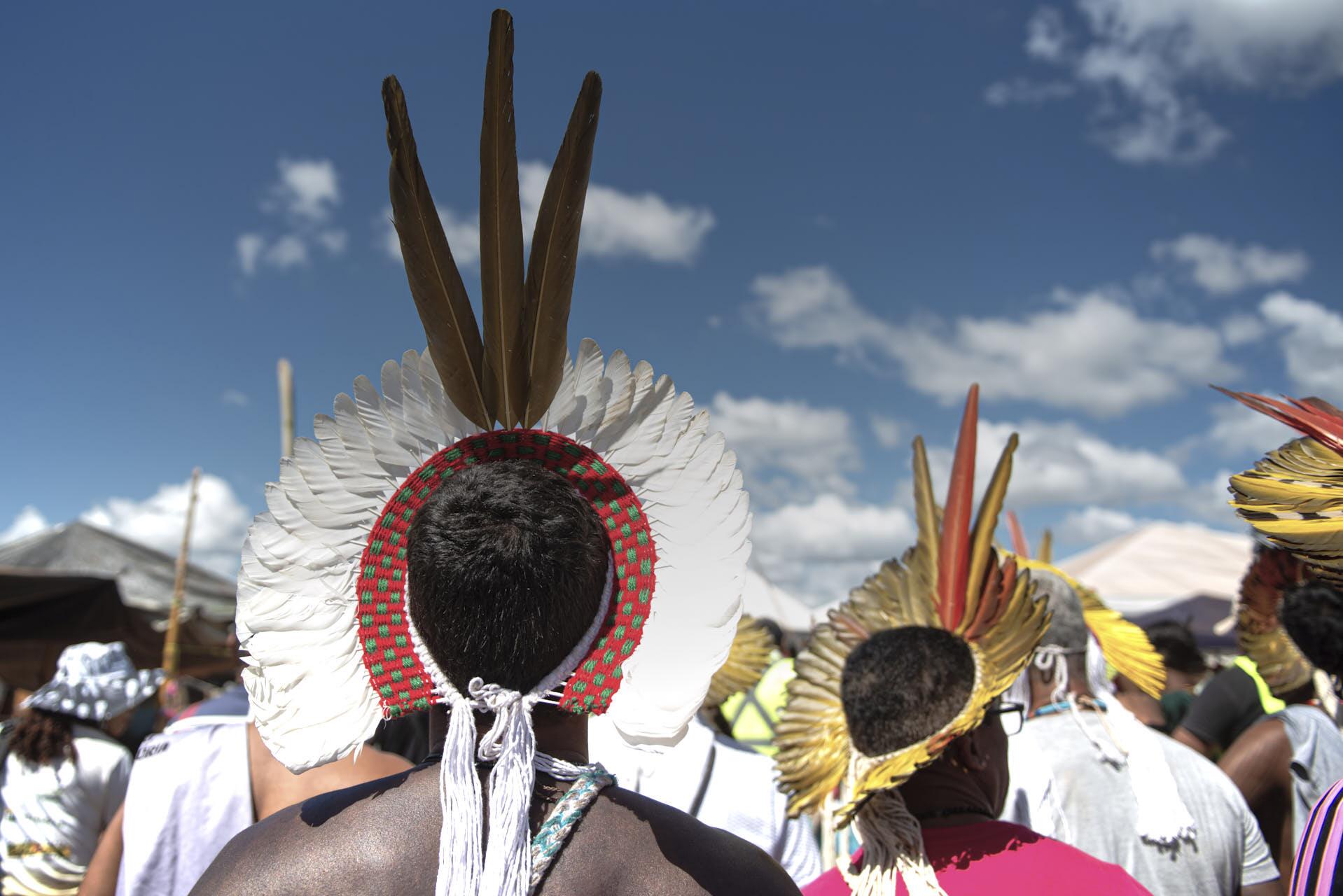
Indigenous people marching at the Free Land Camp (ATL) 2023. Photo: Matheus Alves/Sumaúma

